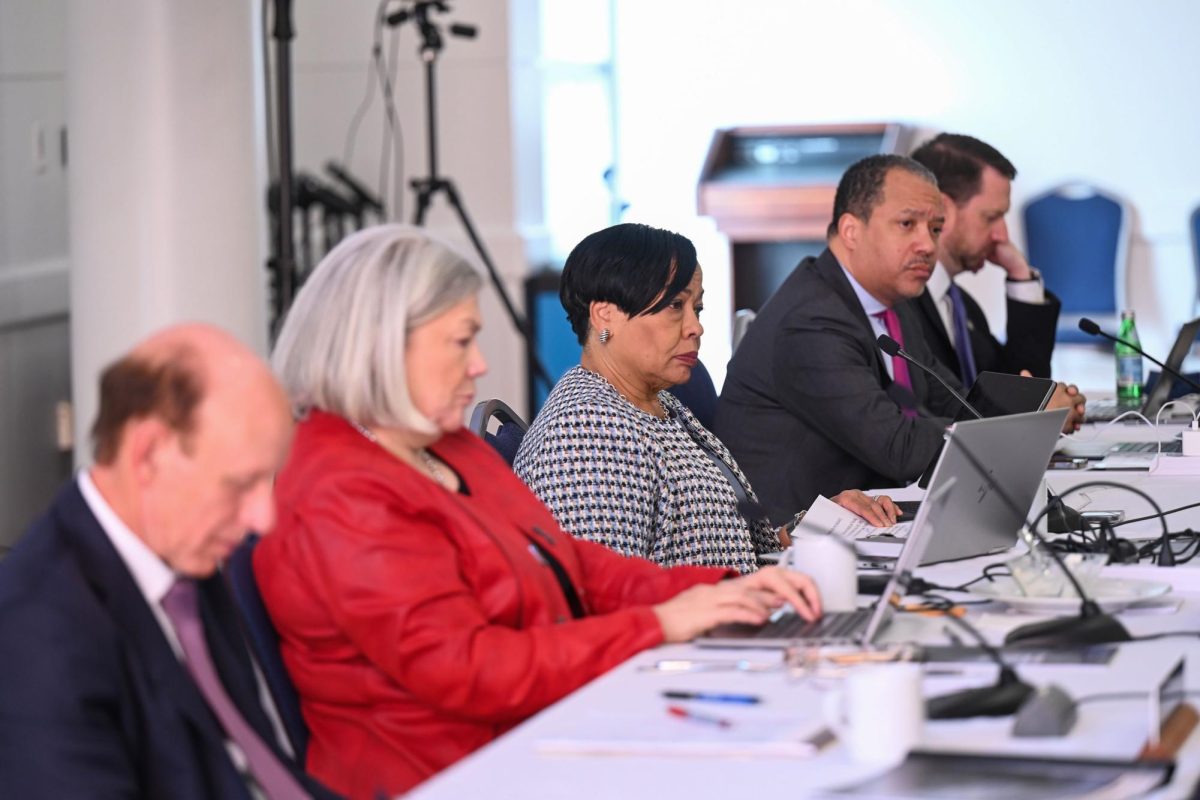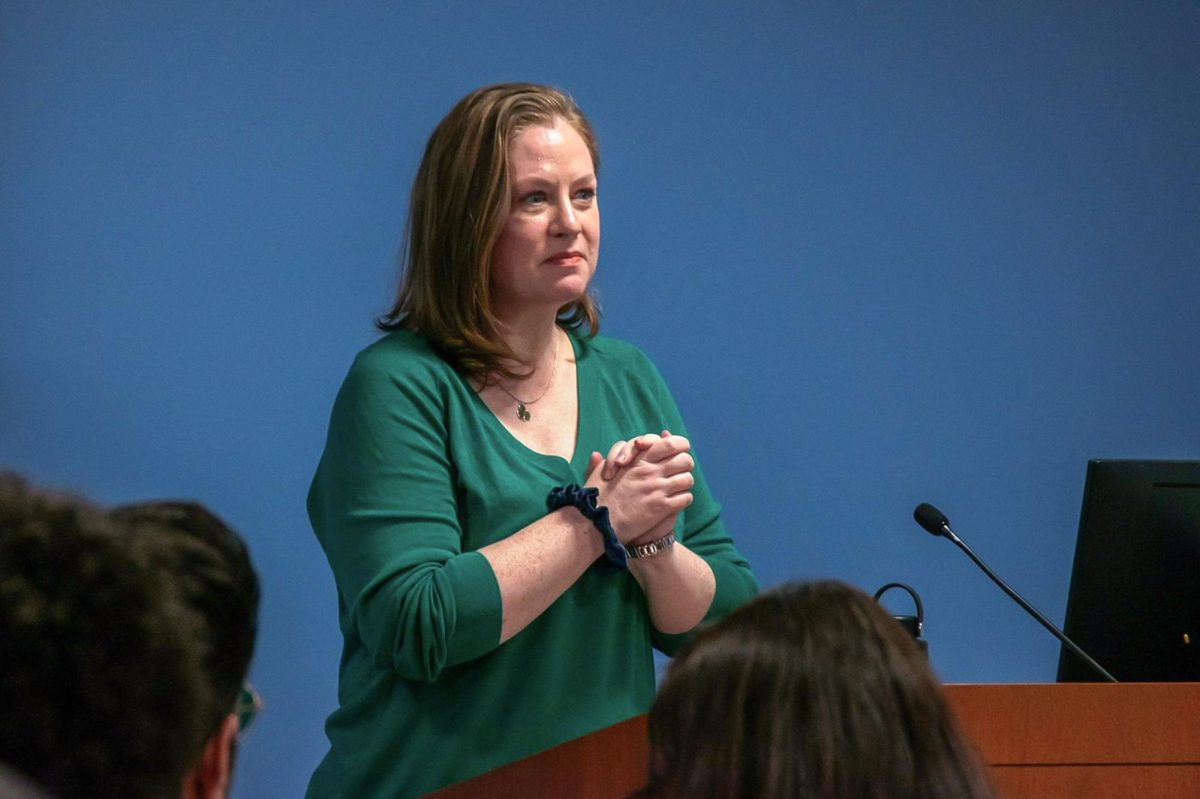The Faculty Senate voted Friday to recommit a resolution to committee censuring University President Thomas LeBlanc for hiring an official involved with the Larry Nassar sexual abuse scandal, directing one of its committees to meet with LeBlanc in private about the matter.
Michigan State University official Heather Swain rescinded her job offer as GW’s vice president for communications and marketing last month following widespread criticism of her efforts to shield information from investigators during the Nassar case in her role at MSU. The censure resolution would request a “full and complete” account of the vetting process for Swain’s hiring, which sparked concerns from some senators about LeBlanc’s ability to share details publicly.
The motion to recommit, which passed 22 to 11, directs the appointment, salary and promotion policies committee to seek a private meeting with LeBlanc and subsequently advise the senate at its next meeting on Oct. 9 if LeBlanc has “satisfactorily” provided those details. The committee will also advise the senate if LeBlanc has presented a document able to be shared publicly about a process for vetting all future “high-level” administrators that includes faculty input.
Arthur Wilson, the chair of the senate’s executive committee, said the hiring is a “grievous error,” and the executive committee has worked “very hard” to receive an explanation about from LeBlanc.
“The answer we’ve pretty consistently gotten is that the lawyers will not allow President LeBlanc to go into detail about what happened and how we can make sure it’ll never happen again,” Wilson said.
Wilson said he voted in favor of the motion to recommit so the ASPP committee can obtain more thorough answers. LeBlanc left the virtual meeting before senators debated the censure resolution.
Earlier in the meeting, LeBlanc said there were “limits” to what he could share in a public setting about the hiring.
“It is not a discussion I want to have it in a public meeting,” he said.
LeBlanc said Swain’s hiring did not cost GW any money, adding that the outside firm used to conduct the search has come to “an agreement” with the University.
A University spokesperson did not immediately return a request for comment about the agreement with the search firm.
The censure resolution, which will be debated again at the senate’s next meeting, condemns LeBlanc for “violating the core principles” of the University. LeBlanc has previously apologized for hiring Swain, adding that he takes “full responsibility.”
The motion to recommit also directs the ASPP committee to advise the senate next month if they should withdraw or amend the censure resolution or debate it as currently written.
Guillermo Orti, a faculty senator who opposed the motion to recommit, said a “solid case” already exists for the senate to censure LeBlanc and pass the resolution.
“I don’t think wasting one month of time will help us understand this better,” Orti said.
Sarah Wagner, a faculty senator who also opposed the motion to recommit, said the issue at hand was “caring” for the University community and making the senate’s position clear.
“[Swain] was invited to work for us in communications and marketing,” Wagner said. “This isn’t just tone deaf. This is a refusal to care for our students.”
The censure resolution also urges the Board of Trustees not to overturn the censure.
Kurt Johnson, a faculty senator and professor of anatomy and cell biology, said he does not support censuring LeBlanc given the “extreme stress” brought on by the pandemic.
“The Faculty Senate seems hell-bent about finding something that’s going wrong with the administration,” Johnson said.
The debate comes as hundreds of faculty, staff, students and alumni have demanded LeBlanc’s resignation, with some citing the Swain hiring as rationale. The Faculty Association, an independent group open to all full-time faculty, organized a demonstration with nearly 100 people earlier Friday in support of LeBlanc’s resignation.










